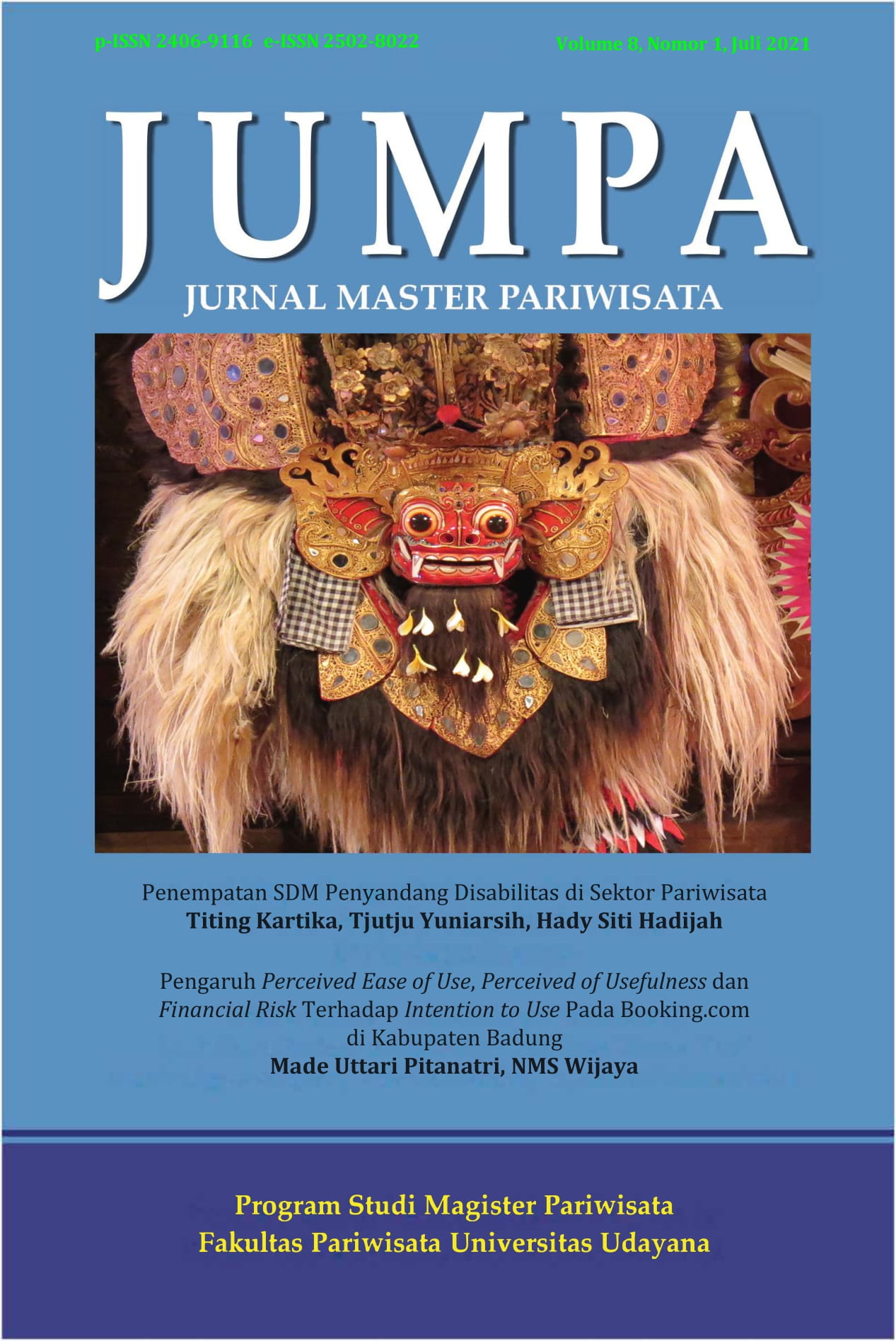Analisis Kewiralembagaan Desa Wisata dalam Pengembangan Desa Wisata Kedang Ipil
Abstract
Kedang Ipil officially became a Tourism Village in 2016. The main advantages are natural Waterfall and Cultural Arts. Readiness in the face of competition needs to be supported by such things as adequate infrastructure, good marketing, and, most importantly, institutional governance. The purpose of this study is to determine the institutional process, the relationship between actors and structures that occur in the development activities of Kedang Ipil Tourism Village. To describe institutional opportunities and arrange elements of tourism village institutional governance to be able and ready to face both local and global competitions. Based on the Institutional Entrepreneurial Task quadrant analysis, the Kedang Ipil Tourism village institution belongs in the third quadrant. The function and formation are already available, but they don't function properly. Tourism management that moves to social enterprises requires actors to be more innovative in organizing tourist destinations, starting from marketing, services, formulating tour packages, even creating new attractions so that existing institutions can run effectively and efficiently so it will affect to the residents’ welfare.
Keywords: Institutional Entrepreneurship, Sustainability, Village Tourism














